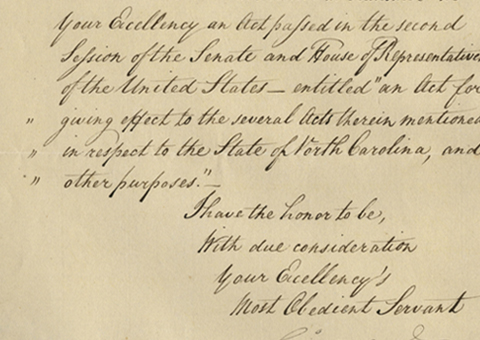Governor (and Signer of the Declaration of Independence) Samuel Adams Appoints a Prominent Politico and Real Estate Magnate a Justice of the Peace

An increasingly uncommon Samuel Adams appointment of this kind
Samuel Adams played a vital role in moving colonial America to its decisive break with Britain before and during the American Revolution. The second cousin of President John Adams, Sam Adams helped organize opposition to British taxation, including the Stamp Act and Boston Tea Party. In the fall of 1772, Adams, with...
Samuel Adams played a vital role in moving colonial America to its decisive break with Britain before and during the American Revolution. The second cousin of President John Adams, Sam Adams helped organize opposition to British taxation, including the Stamp Act and Boston Tea Party. In the fall of 1772, Adams, with James Otis and Dr. Joseph Warren, were among those who created the Committee of Correspondence to foster communication between patriots throughout Massachusetts. Adams was one of four Massachusetts representatives to the First Continental Congress in Philadelphia in 1774. He was a radical who called for independence, and the Congress agreed to boycott British goods until the repeal of the Intolerable Acts. Adams was the mentor of a younger John Hancock. As a delegate to the Second Continental Congress, Sam and cousin John continued to call for independence. Both voted for and signed the Declaration of Independence in 1776. In his home state of Massachusetts, Adams held a number of political offices, and served as governor from October 1794 to June 1797.
Josiah Little of Newbury, Massachusetts was prominent in public affairs. He was representative to the General Court for twenty-five years, was Justice of the Peace for the County of Essex, and he was a member of the constitutional convention of 1820. He was an early supporter of Bowdoin College. Little had charge of his father’s vast real estate for many years, and he inherited much of it. Every year until he was past eighty he used to visit his properties in Maine, New Hampshire and Vermont, driving over the rough roads alone. He was also a proprietor and agent of the Pejepscot Company in Maine. Little always kept his home in Newbury, and was a large owner of real estate in the business portion of Newburyport. He was also engaged to a considerable extent in shipping, and at this death in 1830, he left a fortune of several hundred thousand dollars.
Document signed, Boston, March 3, 1797, appointing Josiah Little of Newbury to be “one of the Justices to keep the peace in our County of Essex…” This is our first Samuel Adams appointment of this kind in many years.

Frame, Display, Preserve
Each frame is custom constructed, using only proper museum archival materials. This includes:The finest frames, tailored to match the document you have chosen. These can period style, antiqued, gilded, wood, etc. Fabric mats, including silk and satin, as well as museum mat board with hand painted bevels. Attachment of the document to the matting to ensure its protection. This "hinging" is done according to archival standards. Protective "glass," or Tru Vue Optium Acrylic glazing, which is shatter resistant, 99% UV protective, and anti-reflective. You benefit from our decades of experience in designing and creating beautiful, compelling, and protective framed historical documents.
Learn more about our Framing Services








































































































